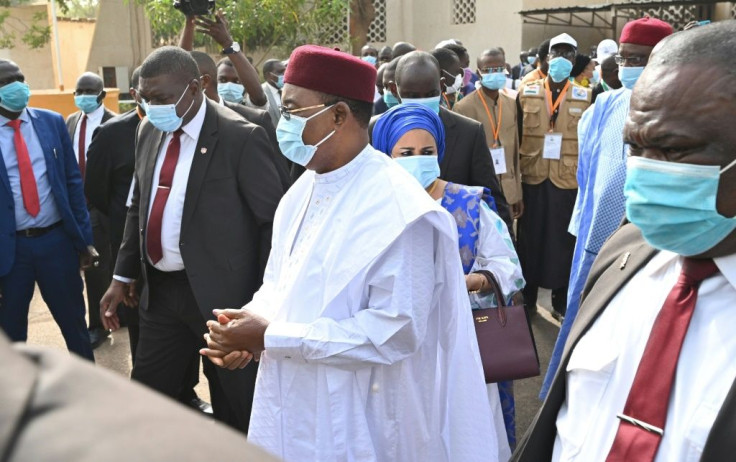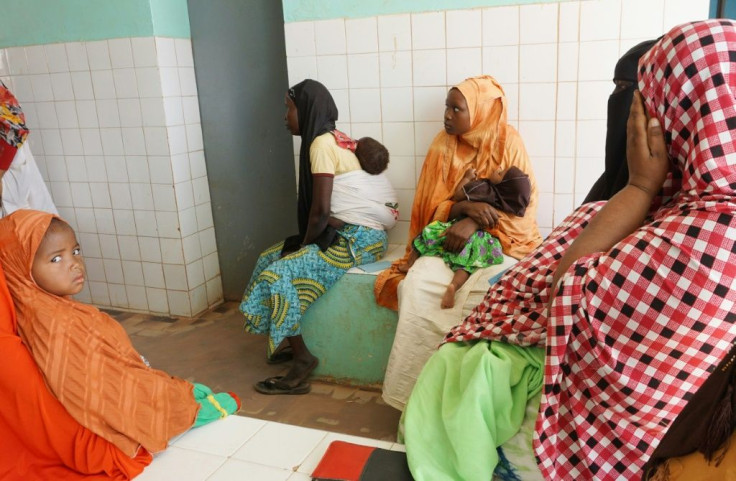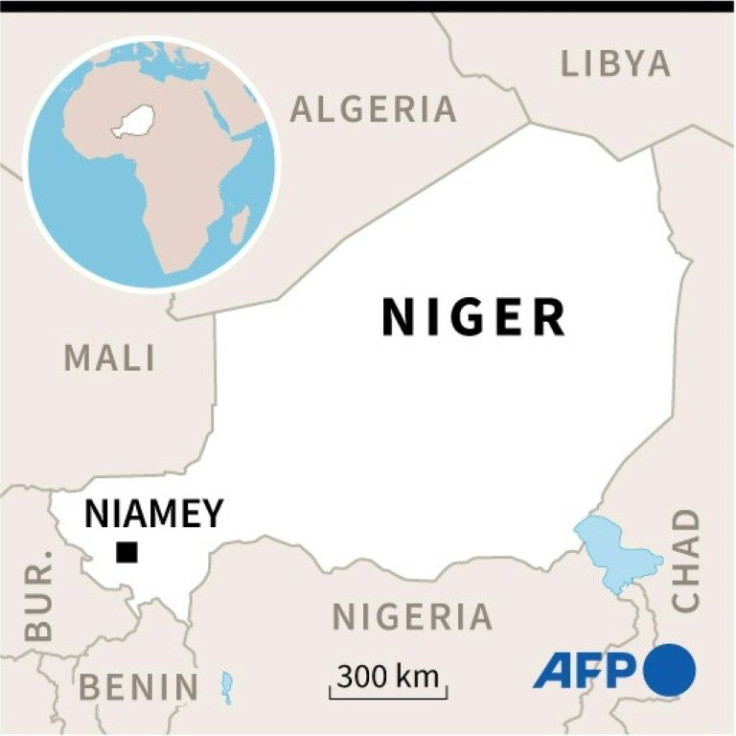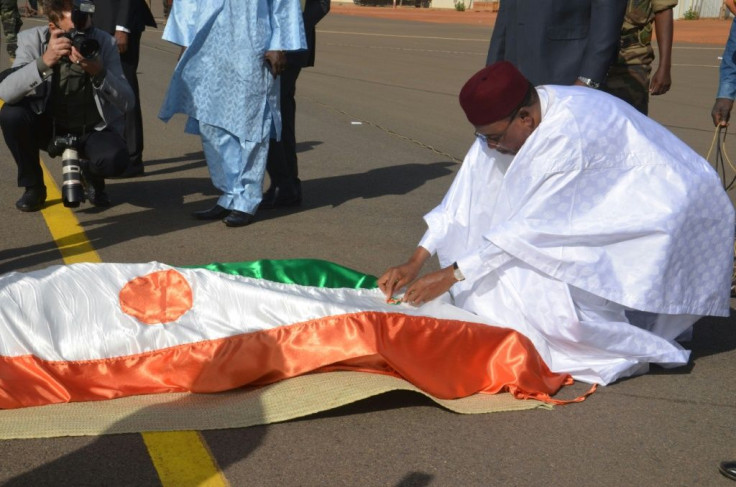Niger's Outgoing President Warns Against 'Fiddling' With Constitution
Niger is battling two jihadist insurgencies and a population explosion and, by a key UN benchmark, is the poorest nation in the world.
But its outgoing president says he is deeply proud that the country is breaking new ground as a democracy, despite its woes.
President Mahamadou Issoufou is to hand on the baton after two constitutional terms in office -- a peaceful electoral transition that is a first for Niger and a rarity in Africa.
"This is the first time in 60 years that there will be a transition from one democratically-elected president (in Niger) to another who is democratically elected," Issoufou told AFP in an interview.

"We are building a democratic tradition."
In the past year, Guinea and Ivory Coast have been shaken by violence after presidents oversaw constitution changes enabling them to seek extra time in office.
Elections are also upcoming in Uganda and the Republic of Congo, where constitutional tweaks have helped veteran leaders stay in power.
But Issoufou said he was firmly against such moves.

"We can't make strong institutions by fiddling with constitutions, by changing the rules of the game while it's being played," he said.
"The adventure of a third term... would have weakened the institutions that we are building."
Issoufou has gained high marks abroad, especially from former colonial power France, for overseeing a peaceful handover in a country whose post-independence history is studded with coups.
The favoured candidate to win the presidential runoff on February 21 is Mohamed Bazoum, 60, Issoufou's right-hand man and anointed successor.

He has benefitted from the state apparatus during his campaign, while others have complained that under Issoufou activists have been repeatedly arrested and demonstrations banned.
But Issoufou swept aside such complaints.
"Democracy is freedom and order," he said. "There is no democracy without order, just as there is no democracy without freedom."
Niger is struggling with two jihadist campaigns -- a five-year-old offensive in the west on the borders with Mali and Burkina Faso, and a decade-old insurgency in the southeast on the border with Nigeria.

Hundreds of lives have been lost, nearly half a million people have fled their homes, and devastating damage has been inflicted. Last weekend, 105 civilians were massacred in two western villages.
Issoufou said jihadism in the Sahel posed a far wider threat and called for an "international coalition" to combat it.
"The whole Sahel is infested" by armed Islamists, Issoufou warned.
"Security is a worldwide public good. What happens in the Sahel concerns the rest of the world. If terrorism manages to establish a foothold in Africa, it will gain a footing in Europe."
For now, France and the United States have bases in Niger, which has also joined four other struggling Sahel countries in an anti-jihad coalition.
In his final months in office, Issoufou has set plans to double the size of the armed forces over the next five years -- a major economic ask for a country ranked poorest in the world in the UN's 189-nation Human Development Index.
Issoufou puts his faith in the new African Continental Free Trade Area (AfCFTA), founded in 2018 and symbolically launched on January 1 after delays caused by the Covid pandemic.
The free trade zone will "create the biggest market in the world with 1.2 billion consumers", he said. "It will put an end to the balkanised (regional) markets Africa has known, which have been at the root of the failure of many industrial policies because markets are too restricted."
"Afro-pessimism is behind us," he declared, calling for "ambitious policies (and) the deepening of certain values, especially democracy and human rights."
The president also voiced optimism about his efforts to stem Niger's population crisis.
But he cautioned the work took time to bear fruit, as it required the education of girls as well as awareness programmes, enlisting the help of religious and traditional leaders.
Niger's population is expanding at 3.9 percent a year, the highest in the world, and each Nigerien woman has 7.6 children on average.
At independence in 1960, Niger had three million inhabitants, which has risen to 23 million today and on current trends could reach 70 million in 2050.
"Demographic growth has eaten away a good part of our economic growth," Issoufou said. "We have to keep young girls in school until the age of 16 to avoid early marriages and pregnancies."
Asked to assess his record, Issoufou smiled. "I'm proud overall. I have kept the promises I made to the Nigerien people. I will continue to be at the helm until April 2, but there's no void ahead -- there's life after power."
© Copyright AFP 2024. All rights reserved.





















